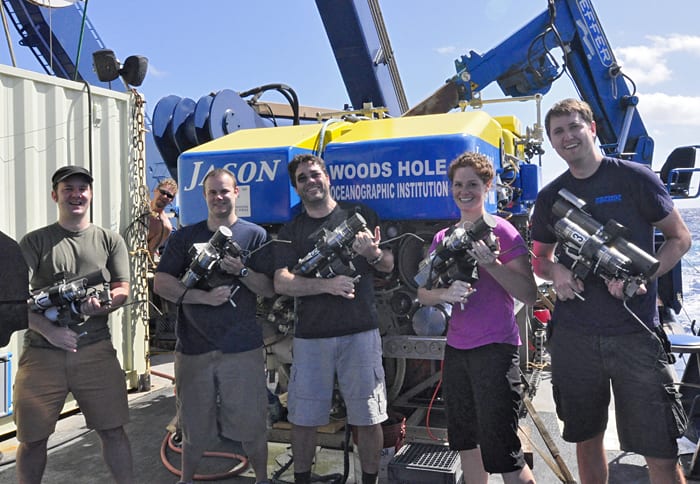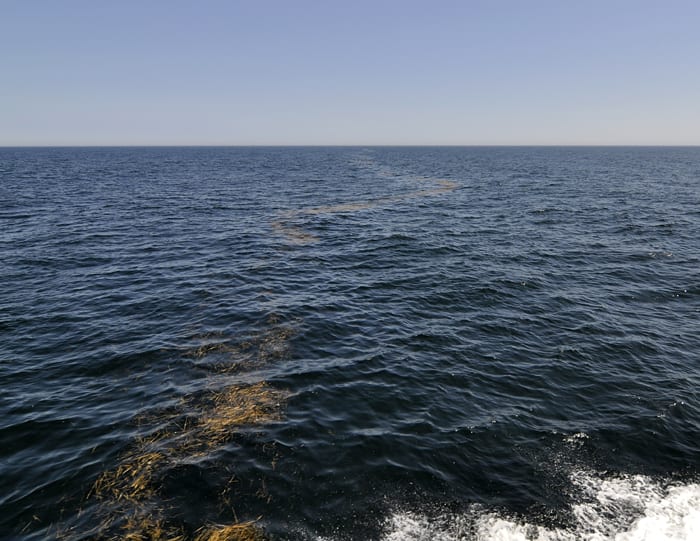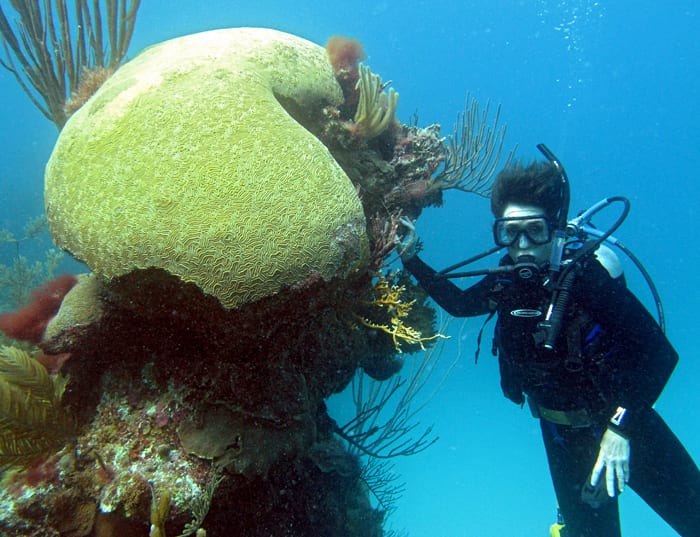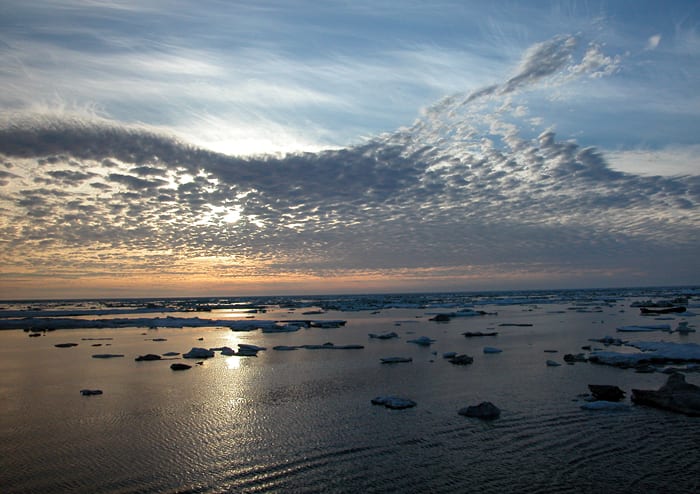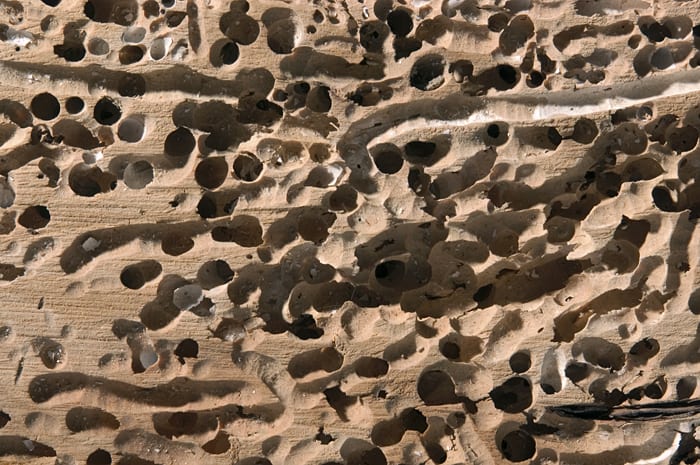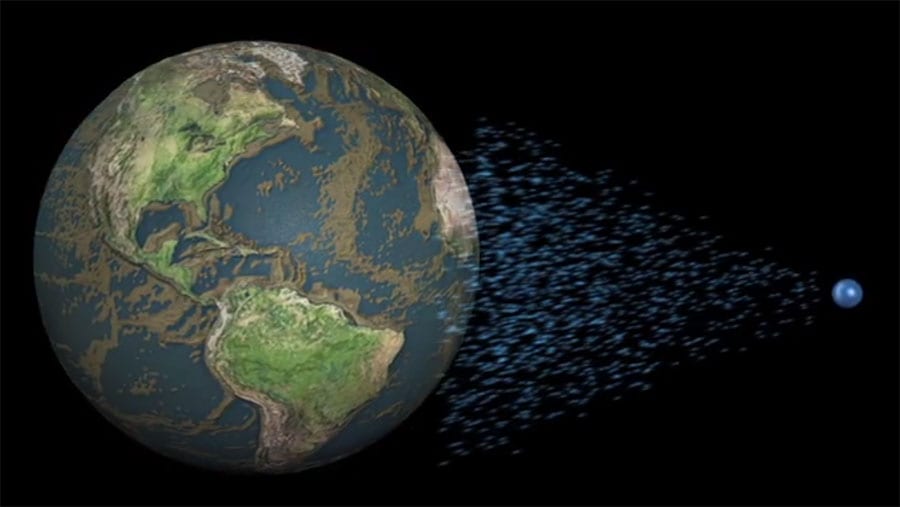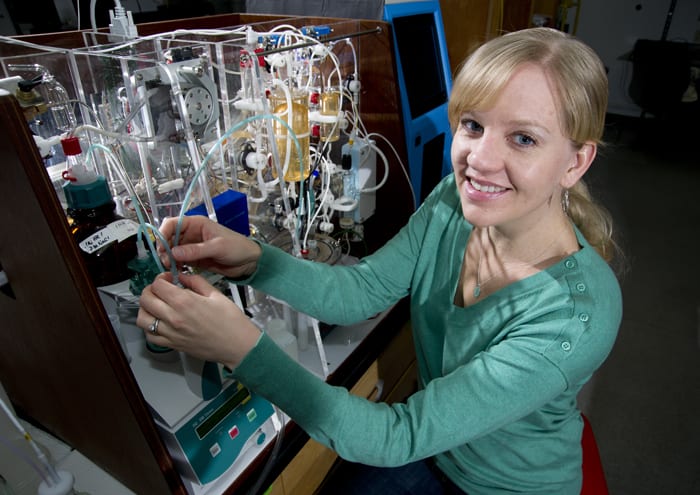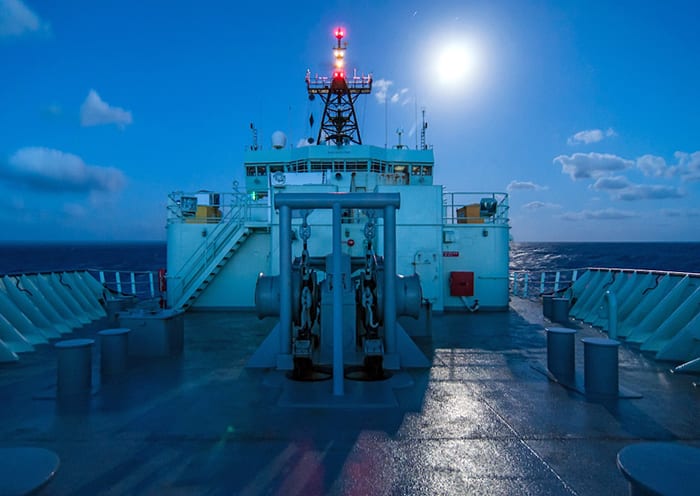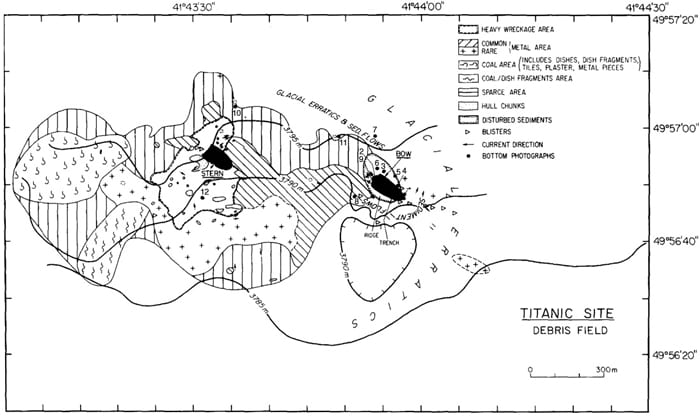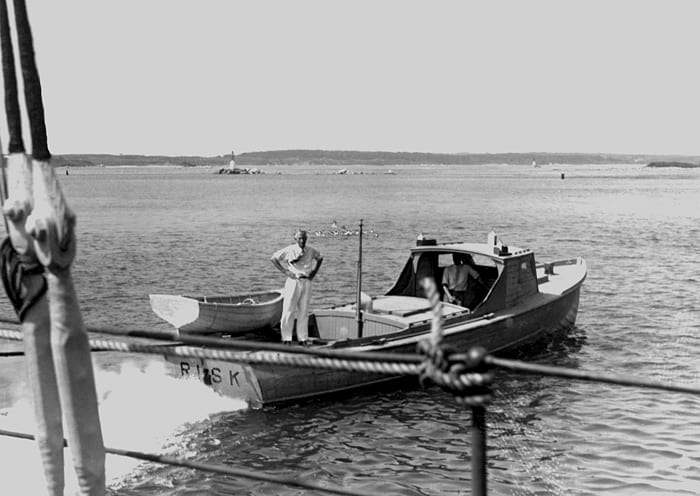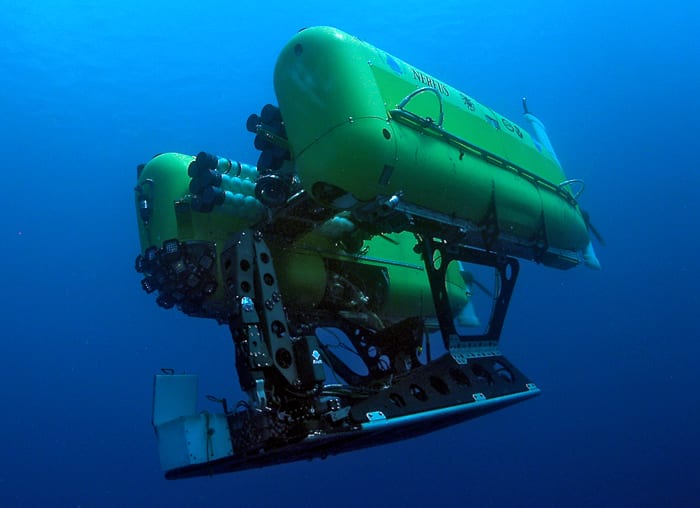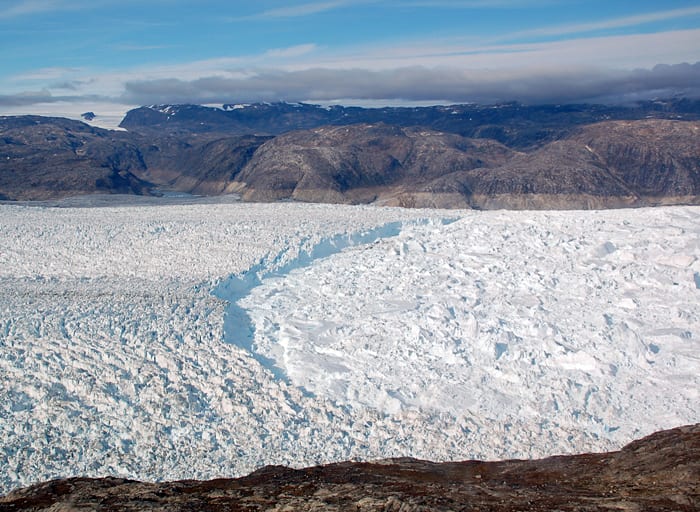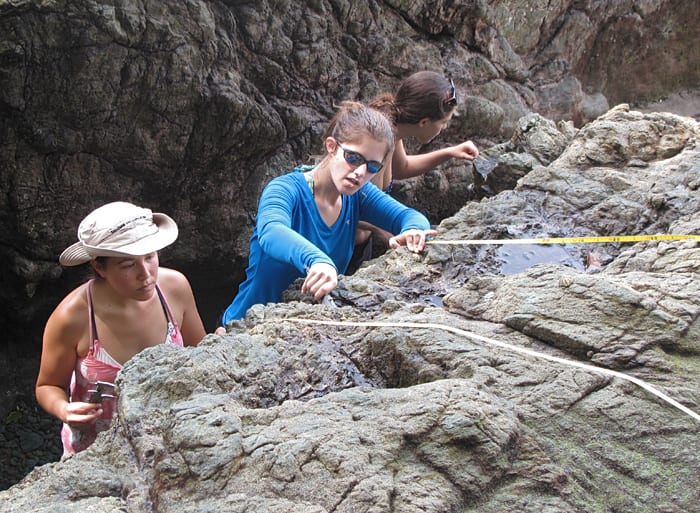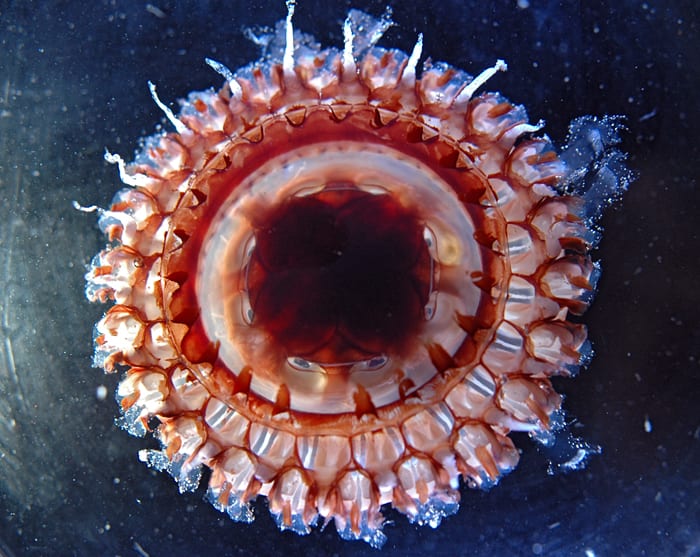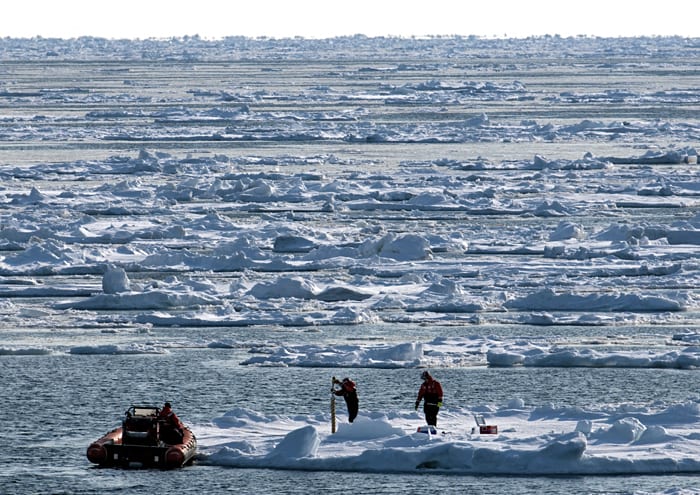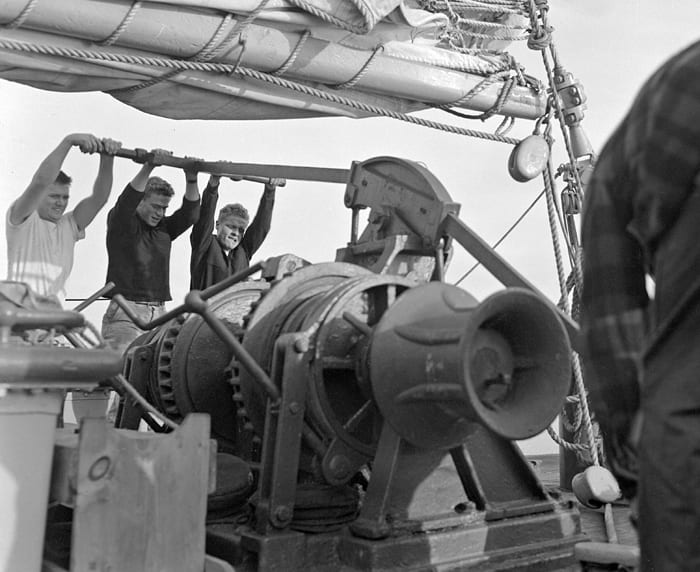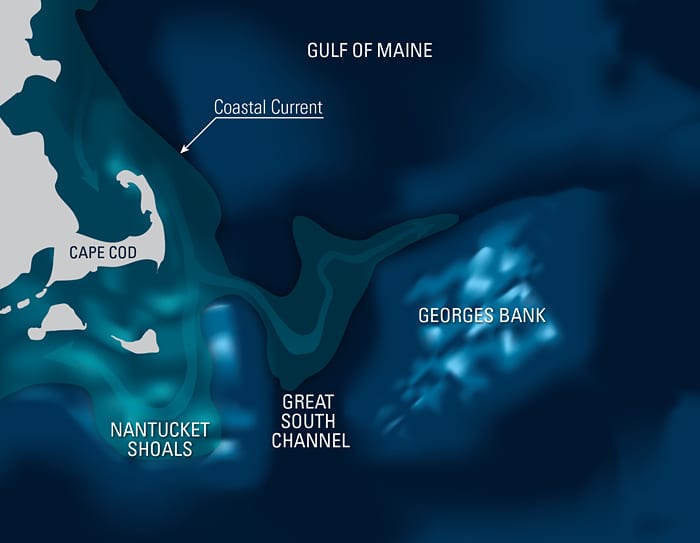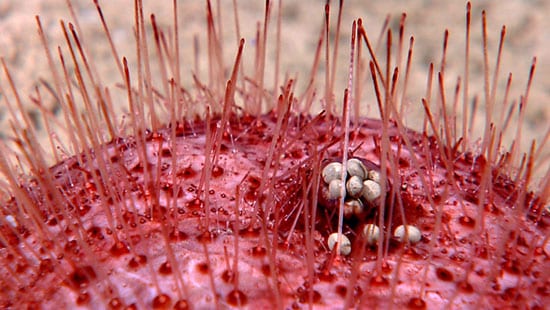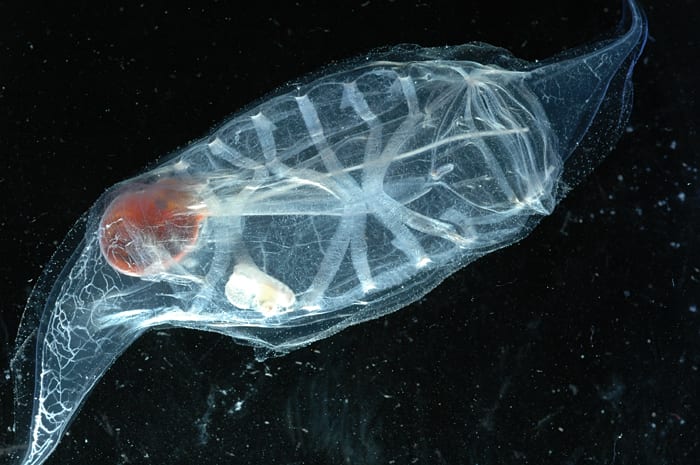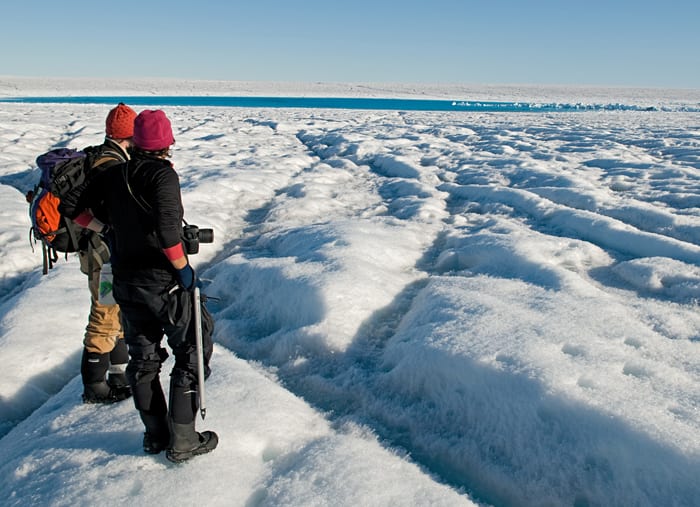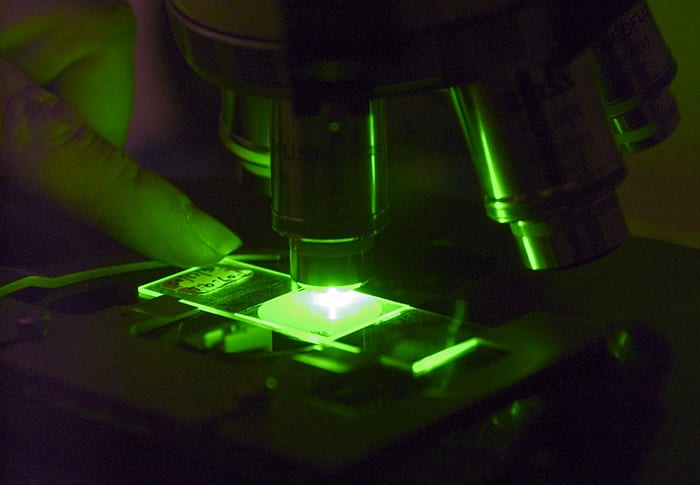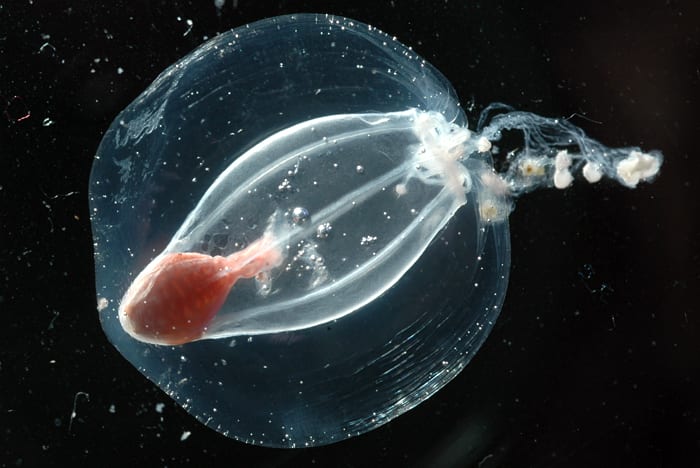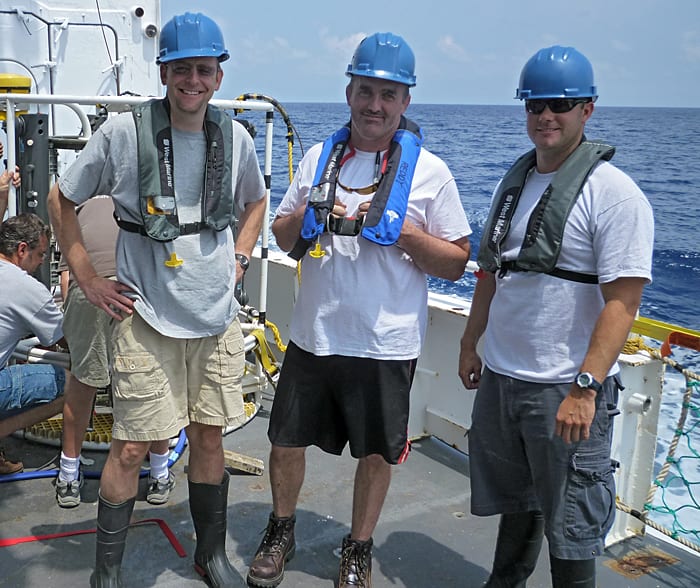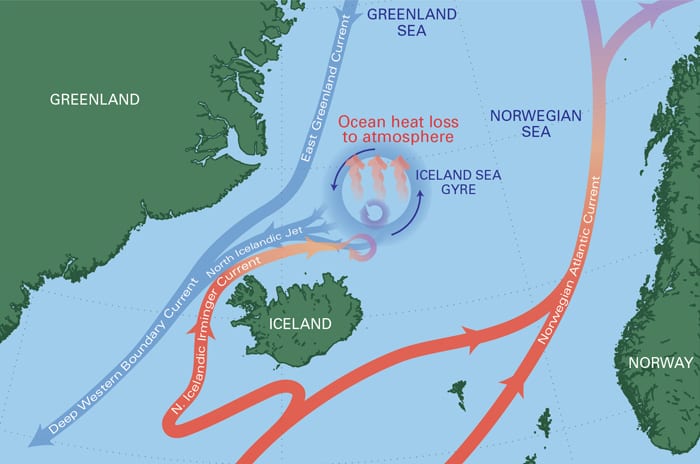Multimedia Items
Armed and Ready to Sample
Members of the OASES 2012 expedition pose in front of ROV Jason, “armed” with isobaric gastight samplers. Frieder Klein, Sean Sylva, Jeff Seewald, Jill McDermott, and Eoghan Reeves (left to…
Read MoreOcean Fronts
Like the atmosphere, the ocean has fronts where masses of different temperature and salinity come together. Colder and/or saltier seawater is heavier than warmer, less salty water, and so it…
Read MoreReef as Refuge
Scientists have predicted that ocean temperatures will rise in the equatorial Pacific by the end of the century, wreaking havoc on coral reef ecosystems. But a new study published by Woods…
Read MoreWater Water Everywhere
The summer sun never sets in the Arctic, but it did provide inspiring views for scientists working around-the-clock in the summer of 2002, during a month-long expedition in the Chukchi and…
Read MoreOcean Termites
Those exploring the wreck of the Titanic have found none of the elaborate woodwork that was the hallmark of the luxury liner’s grand staircase. Any wood that does remain is…
Read MoreAll the Water on Earth
If Earth were a basketball, all its water would fit in a ping pong ball—and fresh water in a popcorn kernel.
Read MoreA Fine Balance
WHOI postdoctoral researcher Katie Shamberger makes adjustments to VINDTA (Versatile INstrument for the Determination of Total inorganic carbon and titration Alkalinity) in the lab of associate scientist Dan McCorckle. By making…
Read MoreRed White Red, Restricted Ability Ahead
Under a full moon in May 2012, R/V Atlantis stopped in the North Atlantic to lower a rosette samper with a CTD sensor into the ocean as part of the…
Read MoreThe Original Titanic Map
Following the 1985 French-American expedition that discovered the wreck of Titanic, WHOI researchers William Lange, Elazar Uchupi, and Bob Ballard examined all the still and video images captured by deep-sea…
Read MoreTwo Leaders, One Boat
Two of WHOI’s original and most storied leaders teamed up to pull the Insitution’s pioneering original vessel Atlantis away from a Woods Hole dock. WHOI’s first director, Henry Bigelow, (at…
Read MoreDeep Diver
The hybrid remotely operated vehicle (HROV) Nereus is a one-of-a-kind vehicle that can operate either as an autonomous, free-swimming robot to conduct wide-area surveys, or as a tethered vehicle for…
Read MoreHidden Secrets
This seemingly solid expanse of ice actually presents a complex oceanographic problem. Surface meltwater flowing through and beneath Helheim Glacier on the left side of the cliff in the center…
Read MoreLimpet Pools
Students in the MIT-WHOI Joint Program spent 12 days exploring a remote Panamanian island in January 2011. As part of their coursework, (from left) Li Ling Hamady, Liz Drenkard, and…
Read MoreColor and Flash in the Depths
From the underside, the deep-sea jellyfish Atolla, which can be ten inches across, looks like a flower or a chandelier, not an animal. Atolla is abundant around the world at…
Read MoreAn Icy Ecosystem
In an April 2009 polar expedition, 41 scientists led by WHOI biologist Carin Ashjian set off on the U.S. Coast Guard Cutter Healy to examine how climate change might be…
Read MoreOld School
Crew members sweated out hoisting the anchor on the original research vessel Atlantis, which supported oceanographic research at WHOI from 1931 to 1964. Hauling the anchor was also time consuming: a…
Read MoreThe Great South Channel
Around this time of year, whales and other marine animals find rich feeding areas in the Great South Channel, an undersea canyon between shallower Nantucket Shoals and Georges Bank. Scientists…
Read MoreOcean Explorers Probe Gulf of Mexico
Salp Baby on Board
This transparent animal, a salp lives in the Southern Ocean. White muscle bands crisscross its one-inch tubular body, the brown gut is on the left, and it carries a white…
Read MoreWater on Ice
During a 2008 expedition, glaciologists Sarah Das (WHOI), right, and Ian Joughin (University of Washington) trek toward a lake that formed as ice melts in summer and pools in depressions…
Read MoreA Cyst in Time
WHOI researcher Kerry Norton uses fluorescence microscopy to identify and count dormant cysts of Alexandrium fundyense, the alga that produces a toxin that accumulates in shellfish and can cause paralytic…
Read MoreTougher Than it Looks
This little jellyfish may look fragile, but in its own world it’s a predator, hunting unwary prey and well-adapted to a planktonic life suspended in water. Transparency helps it avoid…
Read MoreSmiles Belie the Trials
Despite smiles on their faces, researchers studying the effects of the 160 million gallon Deepwater Horizon oil spill in the Gulf of Mexico in spring 2010 were having anything but a…
Read MoreCurrent Affair
A 2011 expedition led by WHOI physical oceanographer Bob Pickart confirmed the existence of a previously unknown ocean current called the North Icelandic Jet. It feeds cold, dense water into…
Read More
